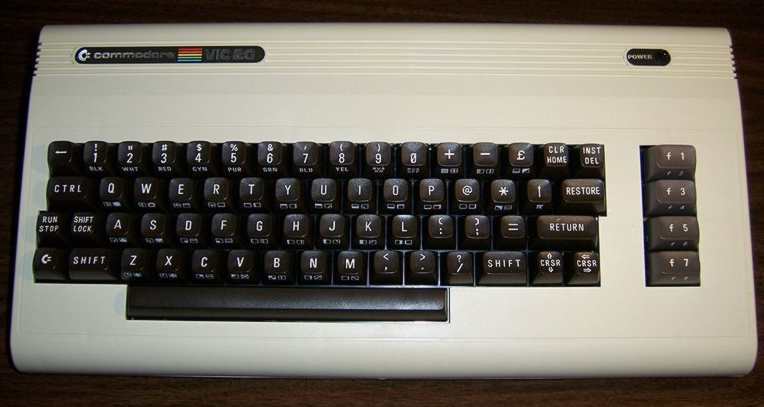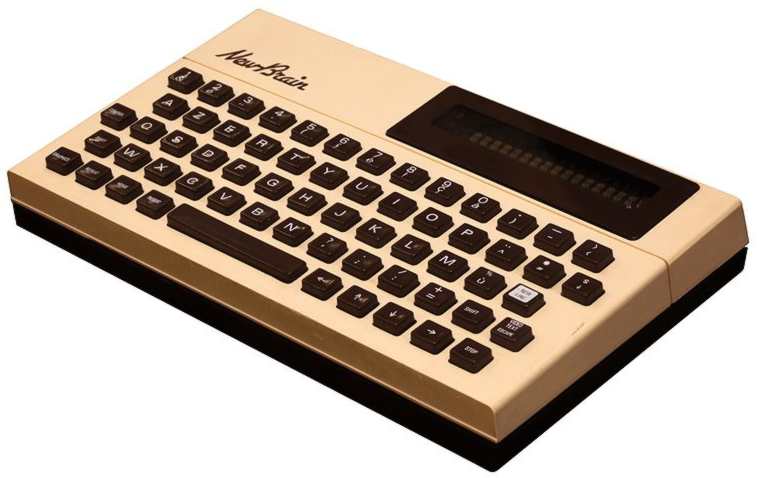| UK Micros of the 1980s |
| Written by Historian | ||||
Page 2 of 3
BBC Micro
With the advantage of hindsight, the ZX-81 and the BBC Micro were the machines that dominated home computing in the UK - and even influenced the wider world. Both Acorn and Sinclair had held off launching their new machines in the hope of being adopted by the BBC but eventually Sinclair lost the battle and Acorn’s "Proton", the successor to the Atom,was named as the new "BBC Micro". It turned out to be February 1982 before the BBC Micro actually fell into the hands of users. It took longer to produce than anyone thought and it cost more. The price went up to £299 for the basic model - after pre-production orders were shipped, presumably at a loss. There were also production problems of the sort that resulted in long waits for customers. It was an expensive machine when compared to the ZX81 but it had a specification well beyond machines of comparable cost. It easily out-performed the Apple II which cost three times as much. So why were people who didn't fancy risking £300 or more on other machines willing to pay for the BBC Micro? The answer should be obvious - it was endorsed by the BBC. Before the BBC Micro schools mostly used the RML 380Z (a big S100 bus machine) or the Commodore Pet but the BBC Micro rapidly became the standard school machine, partly because of its BBC connection and partly because of the subsidies that the UK government offered. This was a gross distortion in the marketplace and its effects were far reaching. While it was forbidden for the BBC to put its logo on say a TV it seemed to be OK for it to do the same on a computer. At first it looked as if the effects were nothing but good in that the public was "turned on" to computing and had the confidence to actually buy a high performance machine. The bad effects only showed up later when the UK educational establishment found itself tied to the BBC Micro when the rest of the world moved on to the IBM PC. If you want to know more about the BBC Micro, including a video, see BBC Micro Retrospective.
Commodore VIC 20
The Commodore VIC 20 At this stage the only machine to be in competition with the ZX81 and the BBC Micro was the Commodore VIC 20, which came from the USA and was launched at the end of 1981. The VIC was sold as a real machine with a real keyboard, a proper Basic (Microsoft), colour graphics, etc. but it cost £200. As a competitor to the ZX81 it was just too expensive but against the BBC Micro it had a better chance. Other US imports, such as the Atari 400 and 800, were even more expensive and under-powered by comparison. The Newbrain
The Newbrain As an interesting aside, the machine that Sinclair designed before the ZX80, and the design that was forcibly sold off when his electronics company went broke, also hit the market at about the same time. The Newbrain, as it was called, was a very different proposition to the ZX81. It was built of lots of TTL chips, it was heavy and used a lot of power. However, it did come in a metal case, had a built in single line display and had a quality keyboard - shame it cost £230.
Enter the Spectrum
The ZX Spectrum
In June of 1982 the world moved on again with the ZX81 being replaced by the Spectrum. This was another innovative machine but now in full color with an improved case and keyboard. The Spectrum sold for £125 and was capable of running games software of a quality that made it worth buying just for fun. Acorn announced its challenge to the Spectrum, the Electron, a cut-down version of the BBC Micro. However Acorn was months behind Sinclair and, despite being an equally performant machine, the Electron never had the impact of its big brother machine. The Acorn Electron By now the personal computing world had seen the machine that would eventually cause the real revolution - the IBM PC. However the UK market carried on almost unaffected by it. |
||||
| Last Updated ( Thursday, 11 March 2021 ) |




